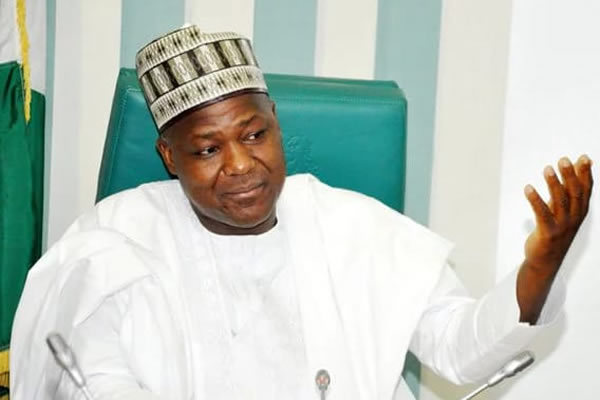- Suspend Vehicle Importation Ban, Reps Tell Buhari
The House of Representatives on Thursday asked the Federal Government to suspend its new policy of banning the importation of vehicles through land borders.
The lawmakers specifically advised President Muhammadu Buhari to intervene by urgently directing the Nigeria Customs Service to reverse the policy.
The policy is expected to come into effect from January 1, 2017.
Instead of enforcing a ban, the House called on the government to ensure that security agencies manned the land borders diligently to enforce the payment of import duties and ensure the remittance of same to the treasury.
“The House further urges the government to install border security and surveillance equipment for effective monitoring to address the recurring menace of smuggling and ensure a maximum revenue generation on all lawfully-imported goods,” the resolution stated.
The decision came after an All Progressives Congress lawmaker from Sokoto State, Mr. Abdullahi Salame, informed members that the policy could only worsen the “hunger and insecurity” in the land, and cause job losses.
Leading the debate on the motion, Salame said corruption at the borders would increase as Customs personnel would seize the opportunity to divert revenue into private pockets.
“The government will indeed lose revenue and Customs personnel will connive with smugglers to divert revenue. Car dealers will lose their business and this also implies that millions of Nigerians will lose their means of livelihood,” he stated.
According to Salame, prices of vehicles will hit the rooftops in Nigeria, making fairly-used cars out of the reach of ordinary citizens.
“A similar exercise in the case of importation of rice has brought untold hardship on Nigerians as a bag of rice now sells for between N20,000 and N23,000 as against N8,000 a few months ago,” he added.
A member from Adamawa State, Mr. Sadiq Ibrahim, noted that the buck stopped on Buhari’s table.
He said, “I am addressing Buhari. He should suspend the ban; there is no alternative. Why ban car importation through land borders when you have not provided other options for those in the business to survive?
“This policy will serve no useful purpose and there will be more problems than solutions to the hardship arising from our economic situation of today.”
Another APC member from Kwara State, Mr. Zakari Mohammed, suggested that the government could modify the policy to reflect that vehicles of certain ages should not be imported through the land borders.
“The administration of former President Olusegun Obasanjo had such a policy in place before. We can return to that policy or ensure its full implementation this time round, rather than a blanket ban,” Mohammed said.
But, another APC member from Katsina State, Mr. Ahmed-Baba Kaita, tried to rationalise the government’s action, saying that Nigeria was losing more revenue compared to whatever benefits that could be derived from land border importation.
For example, he said the country was the final destination of nearly all the cars imported into neighbouring countries through their seaports.
Kaita explained, “So, we have a situation whereby these countries collect their duties, improve their economies, but the cars are coming to Nigeria duty-free. We have had instances where even state governments in Nigeria imported their vehicles through Benin Republic, paid the duty there, but would not pay in Nigeria.
“The policy may look harsh on the onset but in the long run, the country will be better off with it.”
However, Kaita’s explanations could not convince the majority of lawmakers, who voted in support of the passage of the motion.
The session was presided over by the Speaker, Mr. Yakubu Dogara.


 Forex3 weeks ago
Forex3 weeks ago


 Naira2 weeks ago
Naira2 weeks ago
 Billionaire Watch2 weeks ago
Billionaire Watch2 weeks ago




 Naira2 weeks ago
Naira2 weeks ago




 Naira2 weeks ago
Naira2 weeks ago




 Naira1 week ago
Naira1 week ago




 Naira4 weeks ago
Naira4 weeks ago




 Naira3 weeks ago
Naira3 weeks ago





















